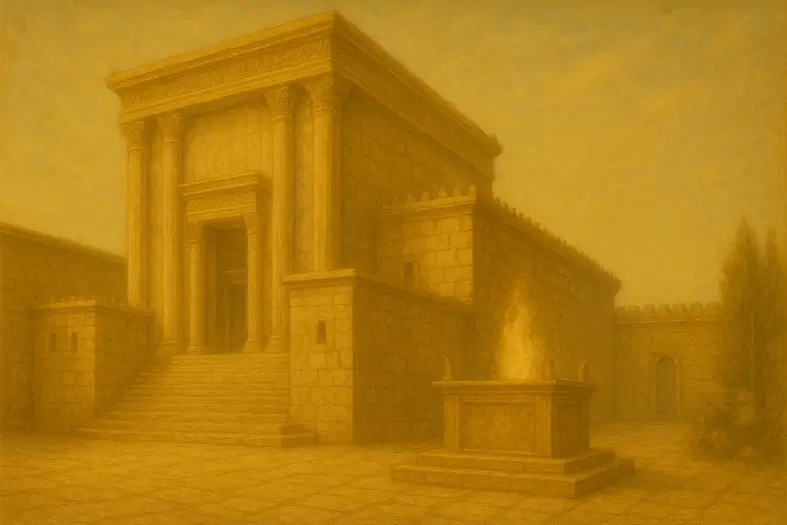


It is forbidden to omit salt from any korban offered on the Mizbeach.
While Mitzvah 348 establishes the positive obligation to salt every sacrifice, this mitzvah prohibits its omission. Salt symbolizes permanence, incorruptibility, and covenant. Without it, a korban is considered lacking and unfit for the altar.
Rambam explains that this mitzvah reinforces the central role of salt as a sign of Hashem’s covenant with Israel. Sefer HaChinuch notes that the Torah repeats the requirement both positively and negatively to emphasize its absolute importance in korbanot.
The Talmud states that failure to salt a korban invalidates the offering, showing that salt is not decorative but essential. Ramban elaborates that omitting salt disregards the eternal covenant established at Creation and symbolized in the Temple service.
Commentary & Classical Explanation:


Represents the concept of spiritual intentionality, purity, and sanctity—set apart for a higher purpose.
Concerns the Beit HaMikdash, korbanot (offerings), and priestly service.
Tied to the eternal covenant between G‑d and the Jewish people, including signs like brit milah and Shabbat.
Signifies awe and reverence toward Hashem—living with awareness of His greatness and presence.
Mitzvot that define and deepen the relationship between a person and their Creator. These include commandments involving belief, prayer, Shabbat, festivals, sacrifices, and personal holiness — expressions of devotion rooted in divine connection.

Dive into mitzvos, prayer, and Torah study—each section curated to help you learn, reflect, and live with intention. New insights are added regularly, creating an evolving space for spiritual growth.

Explore the 613 mitzvos and uncover the meaning behind each one. Discover practical ways to integrate them into your daily life with insights, sources, and guided reflection.

Learn the structure, depth, and spiritual intent behind Jewish prayer. Dive into morning blessings, Shema, Amidah, and more—with tools to enrich your daily connection.

Each week’s parsha offers timeless wisdom and modern relevance. Explore summaries, key themes, and mitzvah connections to deepen your understanding of the Torah cycle.